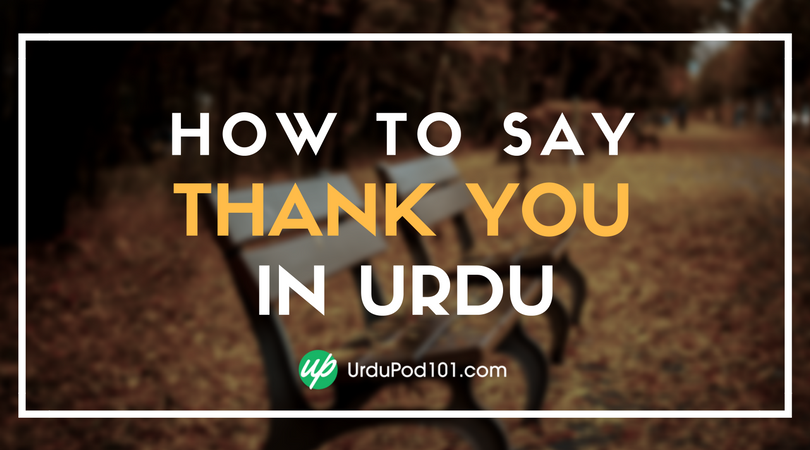
While visiting Pakistan, don’t be surprised if you hear the indigenous people using a few English words in their Urdu conversations. This implementation of English words in the Urdu language (a phenomenon referred to as Pinglish or Paklish) is a normal occurrence in everyday Urdu speech.
The English language and culture have imprinted deeply on Pakistani society, largely due to the historical colonial context of Pakistan. Remember that before it gained its independence in 1947, Pakistan was under British rule for many decades.
In this article, we’ll discuss two categories of English words used in the Urdu language: Pinglish/Paklish and loanwords. And because this language exchange goes both ways, we’ll also introduce you to some common Urdu words used in English.
Let’s get started.
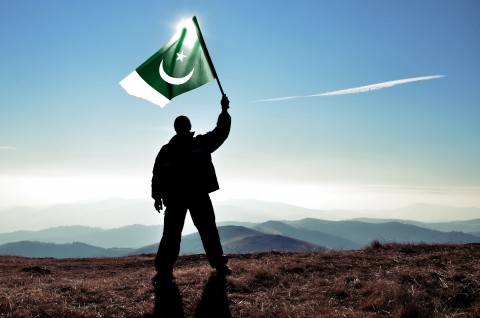
 Table of Contents
Table of Contents
- Introduction to Pinglish / Paklish
- Pinglish Examples
- Loanwords vs. Pinglish
- How to Say These Names in Urdu
- English Words Derived From Urdu
- Conclusion
Introduction to Pinglish / Paklish
Language is a continuous phenomenon. In fact, it’s much like a living organism in that it evolves over time as the world around it changes and advances. This is especially noticeable in the fields of education, science, medicine, and technology, for example.
With the rise of globalization, the Urdu language has come to accommodate, adapt, and assimilate a bunch of useful English words, creating a unique language hybrid: Pakistani English.
Historical Development
The evolution of Pinglish didn’t happen overnight. Its roots can be traced back to the nineteenth century, when educationists and political activists (such as Sir Syed Ahmed Khan) motivated Muslims to learn English and use that knowledge as a medium of resistance against the colonial forces.
Impacts of Colonization
Colonization deeply affected the culture of the subcontinent, which in turn had an impact on the Urdu language. During the colonial era, people were discouraged from using the Urdu language and higher-ups in particular were encouraged to learn and use English. This resulted in an emerging comprador class that popularized English among Pakistanis at every level of society.
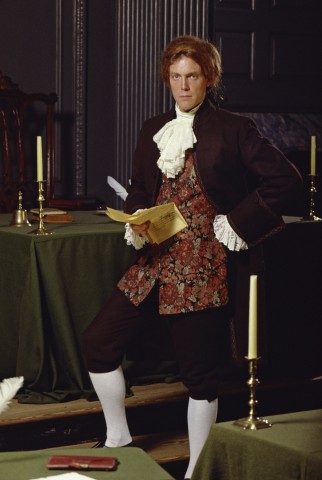
Current Sociolinguistic Scenario in Pakistan
Keeping this historical context in view, it’s easy to see how the English language made its initial cultural inroads into Pakistani society. Pakistanis took pride in learning and using English, which served as a mode of communication in a variety of public and private sectors.
This trend continues to date, and English is popular among the majority of Pakistanis today. Being able to speak English is seen as a status symbol in Pakistan. Over time, they have acclimatized the language according to their needs.
Pinglish Examples
Today, there are many English words used in Urdu across a variety of sectors and mediums, at every level of society.
Pinglish refers to the mixing of English and Urdu words by Urdu speakers, and this mixing is often necessary when discussing certain topics. For example, Pinglish may be employed if an Urdu word does not exist for a specific concept (or vice-versa).
In the following sections, we’ll introduce you to a few Pinglish words as well as important grammatical concepts related to Pinglish.
Urdu Vocabulary Used in Pakistani English
As mentioned, Pakistanis often switch between English and Urdu while speaking in order to use the best words for a given context. When it comes to topics such as Islamic values and Pakistani culture, Urdu words are most often used because there are no suitable English words to describe them.
Here are a few examples of Urdu words used when speaking Pinglish:
- مدرسہ (madressa) – school
- نماز (namaz) – prayers
- مشاعرہ (mushaira) – a gathering of poets for a poetic rendition
- بُزکشی (buzkushi) – a game of sheep-hunting
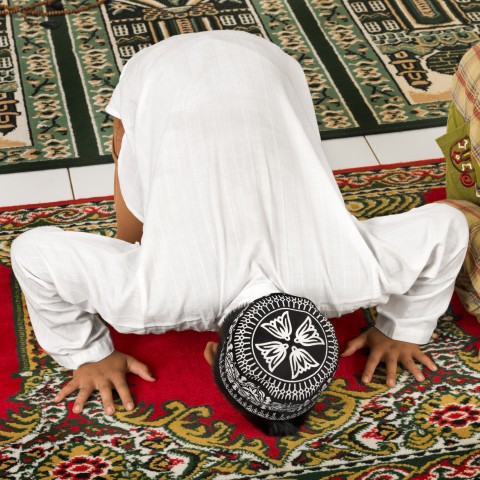
Pinglish Grammar
In addition to vocabulary swapping, another common characteristic of Pinglish is the adaptation of English grammar rules when inflecting Urdu words. A great example of this is when Pakistanis add the ‘s’ sound to the end of an Urdu noun to make it plural:
- جاگیردار (jagirdar) – “landlord” —-> جاگیردارز (jagirdars) – “landlords”
- جلسہ (jalsa) – “meeting” —-> جلساز (jalsas) – “meetings”
The opposite also takes place, where Pakistanis use an English word and apply Urdu grammar rules to it. For example, one of the formulas for making a word plural in Urdu is to attach یں (ain) to the end:
- آنکھ (aankh) – “eye” —-> آنکھیں (aankhain) – “eyes”
Pakistanis sometimes attach this suffix to English words to make them plural:
- کلاس (class) – “class” —-> کلاسیں (classain) – “classes”
- میڈم (madam) – “madam” —-> میڈمیں (madmain) – “madams”
- بال (ball) – “ball” —-> بالیں (ballain) – “balls”
Urdu Vocabulary Used for Abrogation
Sometimes, Pakistanis use an Urdu word even when there is a suitable English word available. This is especially common among Pakistani writers who do so as an act of abrogation or defiance, in order to strengthen the process of decolonization.
Below are a few examples of words that some famous postcolonial writers have used in their fiction writing.
- جشن (jashan) – festival
- تھانہ (thana) – police station
- میلہ (mela) – a Punjabi festival
![Baisakhi: A Cultural Festival [Mela] of Punjab](https://wordlist.languagepod101.com/wordlist/media/27802&v=medium.jpg)
Loanwords vs. Pinglish
So far, we have talked about the various manifestations of Pinglish. But now we will focus our attention on loanwords, which are English words commonly used in Urdu without any morphological or semantic changes. These words are taken directly from English and do not have a translation in Urdu.
Below are some examples of English loanwords in Urdu you’re likely to come across.
Food-Related Vocabulary
- برگر (burger)
- ہوٹل (hotel)
- سینڈوچ (sandwich)
- چاکلیٹ (chocolate)
- چپس (chips)
Be sure to check out our Food vocabulary list to learn more relevant words!
Technology-Related Vocabulary
- کمپیوٹر (computer)
- ٹیلیویژن (television)
- فریج (fridge)
- فریزر (freezer)
- اوون (oven)
- موبائل (mobile)
- انٹرنیٹ (internet)
For more words, see our vocabulary list on Technology.
Film Industry-Related Vocabulary
- فلم (film)
- کیمرہ (camera)
- مووی (movie)
- فلم سیٹ (film set)
- سینما (cinema)
- تھیٹر (theater)
Are you a film buff? Here are some Useful Words and Phrases for Going to the Movies!

More Loanwords
- پیریڈ (parade)
- پیٹرول (petrol)
- نمبر (number)
- سر (sir)
- ریڈیو (radio)
- ماسٹر (master)
- فلائی اوور (flyover)
How to Say These Names in Urdu
Having discussed a few intricacies of Pinglish, let’s divert our attention to a lighter subject. Have you ever wondered how Urdu pronunciation affects the way Pakistanis say Western names? Below are a few examples of how Pakistanis pronounce some of the most famous brand and personality names.
چارلس (Char-las) – Charles
The name ‘Charles’ is given an Urdu touch by being pronounced with two syllables.
لیڈی ڈیانا (Lady Da-ya-na) – Lady Diana
Despite Lady Diana being one of the most renowned Western celebrities in Pakistan, the majority of the population mispronounces her name. In this case, it’s often broken down into three syllables: ڈیانا (da-ya-na).
نائیکی (Nike-ee) – Nike
Nike is a famous brand in Pakistan, but is pronounced incorrectly as نائیکی (Nike-ee).
قلوپطرہ (Colo-pat-ra) – Cleopatra
The historically famous name ‘Cleopatra’ has been appropriated into Urdu as قلوپطرہ (Colo-pat-ra). As you can see, its Urdu pronunciation is quite different from its English one.
میڈم باوری (Madam Bav-ri) – Madame Bovary
The popular fictitious character ‘Madame Bovary’ becomes میڈم باوری (Madam Bav-ri) in Urdu.
English Words Derived From Urdu
Until now, we’ve discussed how colonization has affected the Urdu language and resulted in what we now know as Pinglish or Pakistani English. But did you know that there are plenty of English words borrowed from Urdu as well?
During the colonial era, English administrators, missionaries, and travelers picked up certain oriental words and added them to their memoirs and travelogues. Many of these words became an integral part of the English language over time.
Here are just a few examples of common English words from Urdu:
- جنگل (jungle)
- کمربند (cummerbund)
- خاکی (khaki)
- پاجامہ (pajama)
- خوشی (cushy)
- ٹھگ (thug)
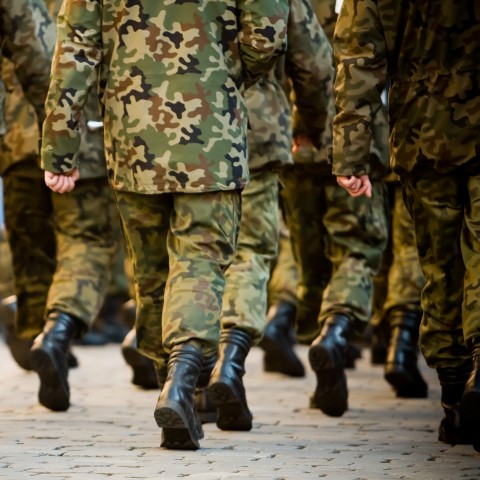
Conclusion
In this article, we introduced you to the various dimensions of Pakistani English and even presented you with English words that originally came from Urdu. We hope you now feel more confident about your upcoming trip to Pakistan and that you’re better equipped to handle day-to-day conversations using Pinglish and loanwords.
Are there any loanwords we forgot to mention? Or a name you would like to know the Urdu pronunciation of? Drop us a comment and we’ll get back to you!
If you enjoyed this article, make sure to continue exploring UrduPod101.com. We are the best online platform for learning Urdu and studying Pakistani culture, offering our students a rich repository of resources on Urdu vocabulary, grammar, pronunciation, and more. Learn Urdu faster and easier than ever before, and start speaking from your first lesson.
Very Happy Urdu Learning!



